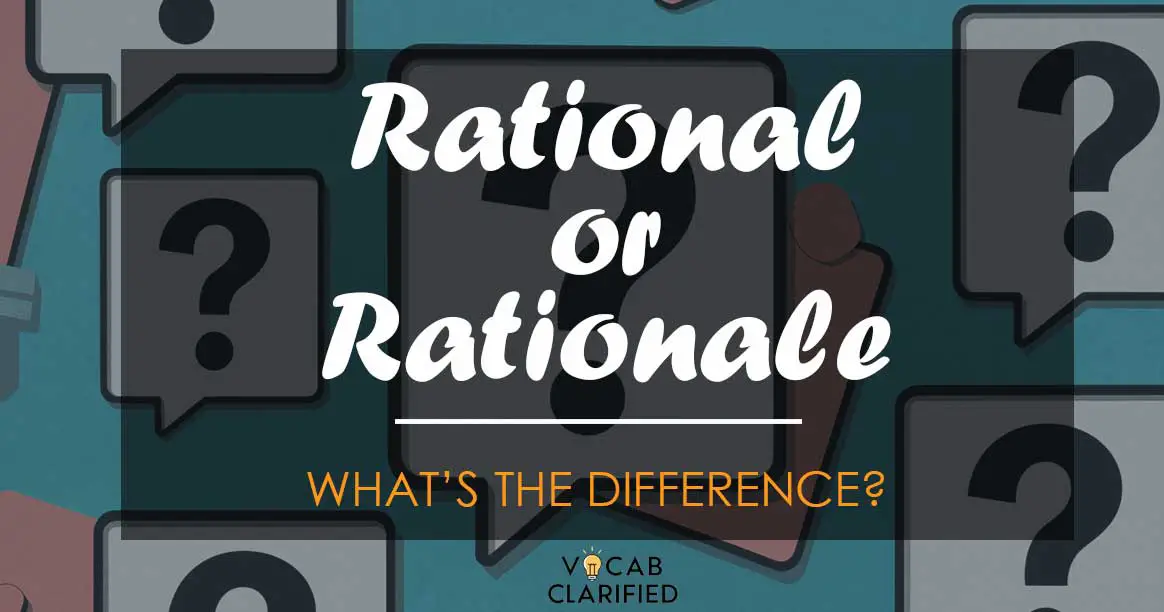Imagine you’re in a heated debate, and someone questions whether your argument is “rational” or if you even have a “rationale” behind it. These two words sound similar and often appear in discussions about logic and decision-making, but they aren’t interchangeable.
In this article, we’ll explore the distinctions between these terms and provide practical examples to ensure you use the right word every time.
Understanding “Rational” And “Rationale”
Rational: Definition and Usage
“Rational” is an adjective typically used in contexts where logic, reason, or sound judgment is involved. It means being based on or in accordance with reason or logic. For example:
- Example 1: Making a rational decision means considering all the facts before arriving at a conclusion.
- Example 2: A rational person remains calm and objective, even in emotionally charged situations.
In essence, “rational” describes the quality of being logical or reasonable.
Rationale: Definition and Usage
Contrastingly, “rationale” is a noun that refers to the underlying reason or explanation for something. It represents the justification or reasoning behind a decision, action, or belief. For instance:
- Example 1: The rationale for the company’s new policy is to improve workplace efficiency.
- Example 2: Before implementing changes, it’s essential to clearly communicate the rationale to all team members.
In summary, “rationale” explains why something is done, while “rational” describes the logical nature of a thought or action.
Side-by-Side Comparison
| Aspect | Rational | Rationale |
| Definition | Based on or in accordance with reason or logic | The underlying reason or explanation |
| Common Usage | “Her argument was rational and well-structured.” | “The rationale behind the decision was sound.” |
| Key Differences | Describes logical quality | Refers to the reasoning behind a decision |
When deciding between “rational” and “rationale,” consider whether you’re discussing the quality of being logical (use “rational”) or the reasoning behind an action (use “rationale”). For example, in formal writing, you might explain the “rationale” behind a business strategy, while in a debate, you would argue whether a point is “rational.”
Everyday Usage Examples
Here are some examples to illustrate how “rational” and “rationale” fit into everyday language:
- Rational: It’s rational to save money for emergencies.
- Rationale: The rationale for saving money is to prepare for unexpected expenses.
- Rational: He approached the problem with a rational mindset, avoiding emotional responses.
- Rationale: The rationale behind his decision was the potential for long-term benefits.
- Rational: A rational explanation can often defuse a tense situation.
- Rationale: The rationale provided by the team helped justify the project’s delays.
Conclusion
Understanding the difference between “rational” and “rationale” is essential for effective communication, particularly in professional and academic settings.
“Rational” refers to the logical quality of something, while “rationale” explains the reasoning behind it.
By using these terms correctly, you ensure that your arguments are both clear and compelling.

